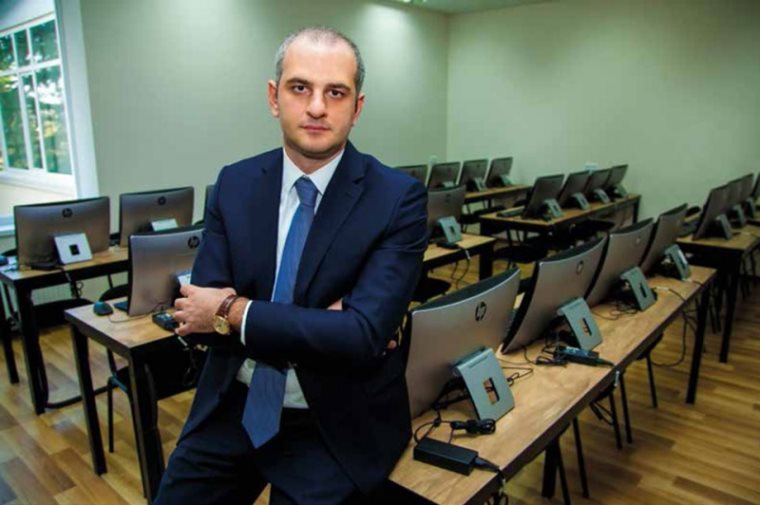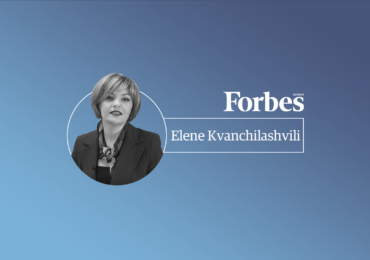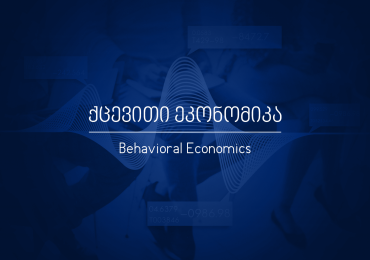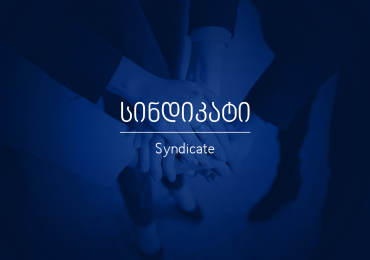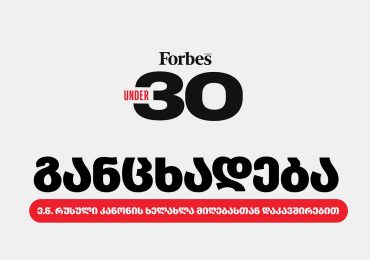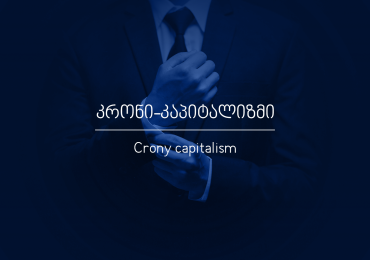With 22 years of experience, tech company Orient Logic has secured themselves a solid position in the Georgian Market. Forbes Georgia talked with Commercial Director Levan Akhvlediani about the road to success, the secrets to managing a well-functioning company, and Orient Logic future plans in hardware and software development, including possible global aspirations.
I never thought I would be a leader at an IT company,” Levan Akhvlediani says laughingly. But here he is, working under the official title of Commercial Director at Orient Logic, a 22 year old company offering hardware, software and services for customers’ IT infrastructure, as well as, network solutions, personal systems, and data center building, including power and cooling solutions.
Sitting in one of the meeting rooms at their office in Dighomi, the atmosphere feels good. Employees walk around and talk to each other in the hallway, a middle aged woman brings us some coffee and water, and a wall covered in awards and certificates gives the room a homey feeling.
In 2015 Orient Logic won Best IT System Integrator and in 2016 Software of the Year at the Georgian IT Innovations Conference and Awards, “It’s the main event for the IT sector in Georgia,” Akhvlediani explains me.
And they won the prices for forward-looking projects, with Akhvlediani being especially proud of the award they won for the software they developed for the Ministry of Education: Virtual Laboratories.
“It’s for students at professional colleges and schools in the regions where they don’t have access to actual laboratories,” Levan says. Through interactive projectors, and the software, students can study both visual theory and get virtual practice in their classrooms.
But it is not just the company’s achievements Akhvlediani is proud of; the managerial style at Orient Logic is one where everyone feels part of a family. And having worked for several different companies in the past in sales and marketing in top managerial positions, Akhvlediani knows what he is talking about.
“It was a breath of fresh air when I came here in 2013,” Akhvlediani says, who worked previously at banks, the oil sector, and in the hospitality industry. “I was used to a work environment crunching numbers and trying to meet quotas on a monthly basis, following daily operations strictly. Because if you didn’t, you could lose salary due to so-called penalties.” A very stressful environment, he explains, one that perhaps isn’t the best strategy to get the best out of your employees.
But at Orient Logic, creating, deciding, and delivering, are all team efforts, with everyone having a say in the company’s strategy, Akhvlediani explains, adding that “people who work in your company are your most important value.”
And this shines through in the planning of a new management structure in which the board brainstorms with the staff on which steps to take. “Of course members of the board have a veto, but I think that if you can show how it could benefit the company, it is possible to convince everyone,” Levan says. That, combined with a hiring philosophy to only “hire visionaries and leaders”, offering their staff trainings, qualification exams every three months, and frequent team building activities, are what give Orient Logic its competitive advantage, Levan strongly believes.
And with several of their former staff working in the EU in top level IT positions – for example at the International Court of Justice in the Hague as Communications and Network Technician – their strategy seems to bear its fruits.
“We’re the cradle of IT specialists,” Akhvlediani says, adding that continuing education is crucial for Orient Logic. “It can be a lack of customer relation skills with IT specialists, or a lack of technical knowledge with account managers, we are engaging them in activities to develop all necessary skills,” Akhvlediani stresses.
The company’s managerial strategy could be attributed to its founding and subsequent growth. In 1992, the founders started working on Orient Logic informally, as a means to add some additional income during the aftermath of the fall of the Soviet Union. In 1995, when the company officially registered, internet did not even exist in Georgia, but that is perhaps how they were able to position themselves smartly in a growing market, Akhvlediani explains. And the family feeling comes from the fact that the founders see Orient Logic as their own family.
But change is inevitable as well, although the change came rather in which customers to serve. And that is where Akhvlediani comes in.
“The main change in our company’s history is that before 2013 we mostly focused on the major banks, telecommunication companies and commercial sector,” Akhvlediani explains, “But when I came to the company, we decided to try to work more closely with the government as well and apply for tenders.”
And that is how Orient Logic won the tender for the Young Olympic Games in 2015, one of the largest [government] tenders available at the time. With the Young Olympic Games, the company won their 2015 award at GITI for Best IT System Integrator, an accomplishment Akhvlediani, rightfully, is extremely proud of.
Orient Logic has changed its strategy, and is now servicing, next to some of the major banks and private companies, NGOs and government institutions. Next to a widening of their target market, they started supporting competitions for students and young entrepreneurs as sponsors, mentors, such as the Cyber Security Olympiad organized by the Data Exchange Agency in 2016, and the Business Incubator by the Georgian Innovation and Technology Agency (GITA).
But not only are they widening their scope of work, they also invest more time and effort into developing software. “We want to create niche products for both the Georgian and the global market,” Akhvlediani says.
And the global market comment catches my attention. When I ask if they have plans to expand beyond Georgia’s borders, Akhvlediani shyly smiles, and says they are considering an office in Europe, and would like to open more globally. “We’ll either start with Eastern Europe, or with the Netherlands,” he says, “because Eastern Europe would be a market we know, but we have some of our alumni in the Netherlands, who we are still very close with. So, who knows what the future will hold for us.”
დატოვე კომენტარი
